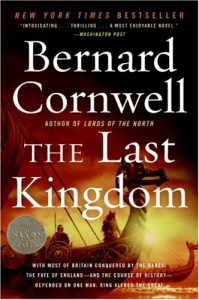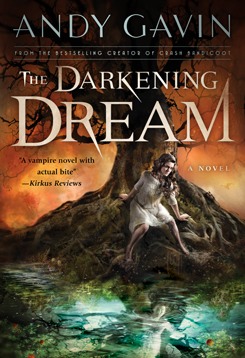 Title: The Last Kingdom
Title: The Last Kingdom
Author: Bernard Cornwell
Genre: Historical Fiction
Length: 384 pages
Read: August 3-13, 2014
Summary: First Rate
I usually don’t read “straight” historical fiction (i.e. without magic), but I was drawn to The Last Kingdom by a comment George R R Martin made about how it contained some of the best battles he’d read.
This is the first volume in the “Saxon Stories” (there are at least 8) and chronicles a fictional earl during tumultuous 9th century England. This is the same period as the excellent TV show Vikings and has a number of overlapping historical figures. Basically, Saxon England was divided into a number of kingdoms and continually raided, invaded, and settled by waves of Danish (vikings, although technically that only refers to raiders). This is an intensely interesting period, detailing a clash between two different very dark ages peoples. The Saxons are a heroic society transforming into a priestly one. And the vikings are just straight up heroic warriors. I don’t use this term in the modern sense of the “hero” of a story, but in its more traditional sense of meaning societies dominated by the charisma of individual warrior leaders.
The Last Kingdom itself is first person, written in a fairly narrative (lots of telling) style. It’s tight, personal, and intensely fast paced without being even slightly exploitive. The whole thing feels very appropriate to the ideas of the time. The narrator, while a Saxon, grew up among the Danish and reflects the warrior ethos. He is disdainful of the weak, of the church, and values the traditional warrior traits of pride, honor, strength, and courage. In these circumstances they aren’t trite, or a caricature, but a reflection of this very traditional mode of masculinity — still admired — but not at all in alignment with the outward values of our modern society. Perhaps this is why medieval fiction, inclusive or exclusive of the fantasy, is so appealing. I’m pretty certain I wouldn’t want to actually hang with any Danish Earls, but they sure make for good fiction.
There is a lot of history in these novels, and Cornwell has clearly done his research. He sticks closely to actual events (as close as can be managed due to our conflicting and incomplete sources). But the details don’t bog the story. Our narrator is skillful woven into the tapestry of events such that both the political complexities and the way of life are chronicled in a personal and immediate way. If this period, or even heroic societies in general, interest you, this is a really excellent series.
For more book reviews, click here.

Both Vikings and The Last Kingdom feature Ragnars and Lothroks, although not exactly in the same way



